
1st Amendment

|
|
- Religion - Freedom to express religious beliefs
- Press - Freedom to express opinions via media
- Assembly - Freedom to gather
- Petition - Freedom to complain to your government
- Speech - Freedom to say what you think.
|
| |
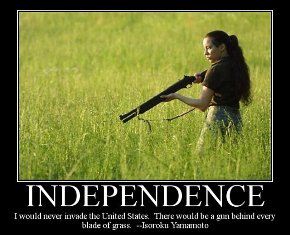
2nd Amendment
 |
|
People, as part of a constant militia, may carry weapons |
| |

3rd Amendment
 |
|
Soldiers may not simply barge into your house. |
| |

4th Amendment
 |
|
Searches are not allowed unless a warrant is granted.
|
| |
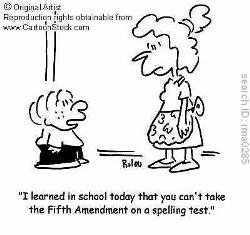
5th Amendment
 |
|
You may stay silent during a trial so not to testify against yourself.
|
| |
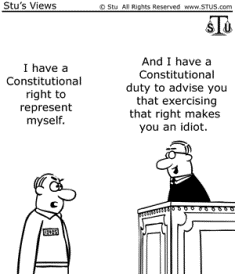
6th Amendment
 |
|
Everyone receives a speedy trial, an unbiased jury, and may receive a lawyer. |
| |
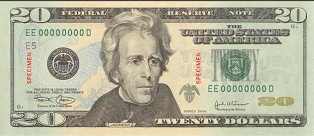
7th Amendment
 |
|
Courts cannot be shifted in order to obtain a different view on the case. The case must be worth more that $20. |
| |
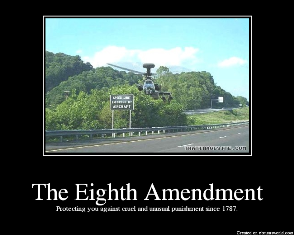
8th Amendment
 |
|
Excessive bail shall not be charged. Cruel and unusual punishment is illegal.
|
| |
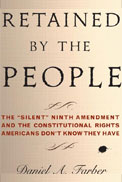
9th Amendment
 |
|
Anything not said in the Constitution shall not be held against the people. |
| |
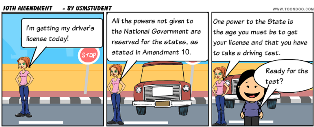
10th Amendment
 |
|
Powers not given in Constitution are given to states and to the people. |
| |
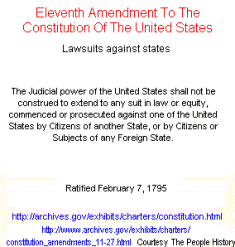
11th Amendment
 |
|
The U.S. Judiciary system only deals in American affairs. |
| |

12 Amendment
 |
|
The voting process, as well as the two-house government system, is described. |
| |
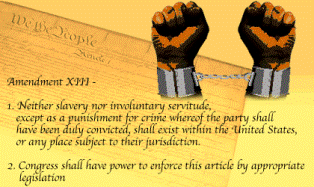
13th Amendment
 |
|
No slavery is allowed, and Congress may enforce this by creating laws. |
| |
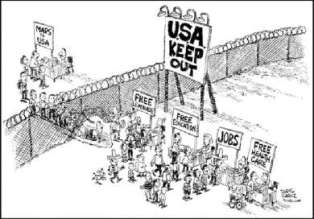
14th Amendment
 |
|
Those born in the US are US citizens. Representatives are based upon population, and those who rebel against the government may not join it. |
| |
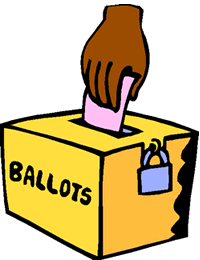
15th Amendment
 |
|
The right to vote cannot be denied based on race, color, or previous condition of servitude. |
| |

16th Amendment
 |
|
Congress can collect taxes, and the states can't resist the demands.
|
| |
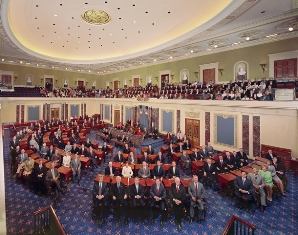
17th Amendment
 |
|
Each state gets two senators. Each senator receives one vote. |
| |
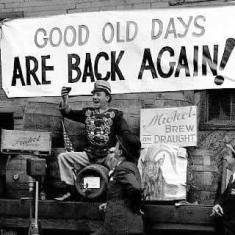
18th Amendment - REPEALED
 |
|
No liquor, anywhere, anytime, in the US. |
| |
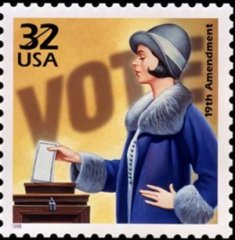
19th Amendment
 |
|
Women receive the right to vote. |
| |
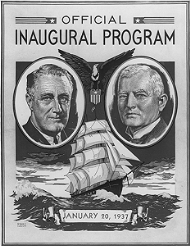
20th Amendment
 |
|
The terms of the presidents end on January 20th. If the president dies, the vice president takes over. Congress meets once a year. |
| |

21st Amendment
 |
|
The 18th Amendment is repealed. |
| |
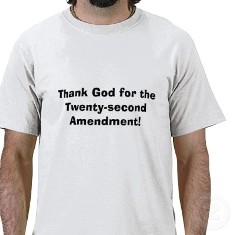
22nd Amendment
 |
|
Nobody can be elected more than two terms as president. |
| |
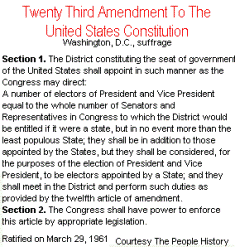
23rd Amendment
 |
|
All potential elects go through the same process and must receive favor from their state. |
| |
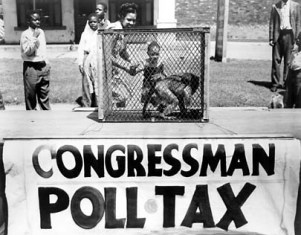
24th Amendment
 |
|
You are not denied the right to vote simply because you forgot to pay yor taxes. |
| |
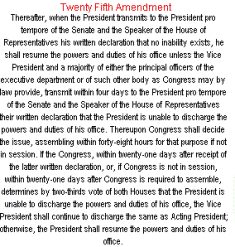
25th Amendment
 |
|
If the president dies, the vice president takes over. The president nominates a VP if the spot is vacant. |
| |
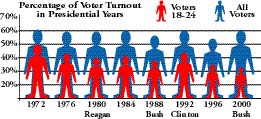
26th Amendment
 |
|
You must be 18 years or older to vote in every state. |
| |
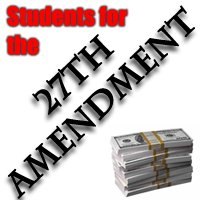
27th Amendment
 |
|
The bicameral way of law cannot be changed without the consent of both sides of the legislature. |
| |
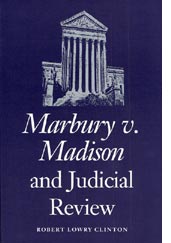
Marbury vs. Madison
 |
|
This case formed the basis for judicial review in the United States. |
| |
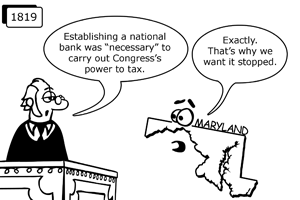
McCulloch vs. Maryland
 |
|
Argued for a national bank to prevent state taxing in inter-state bank notes. |
| |
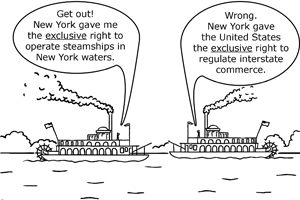
Gibbons vs. Ogden
 |
|
A case in which the Supreme Court of the United States held that the power to regulate interstate commerce was granted to Congress by the Commerce Clause of the United States Constitution. |
| |
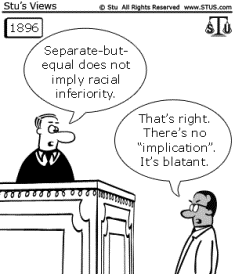
Plessy vs. Ferguson
 |
|
Established "Seperate but Equal," which allowed black children schooling, but seperate from white children. |
| |
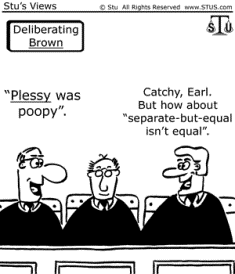
Brown vs. Board of Education
 |
|
The Court ruled that "Seperate but Equal" was incorrect, and overturned it.
|
| |
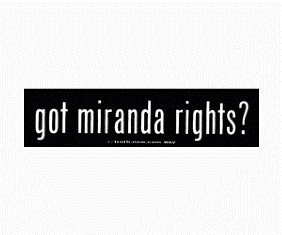
Miranda vs. Arizona
 |
|
A defendant in police custody will be admissible at trial only if the prosecution can show that the defendant was informed of the right to consult with an attorney before and during questioning. |
| |
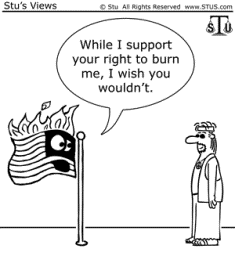
Texas vs. Johnson
 |
|
A man burned the American flag as part of a peaceful protest and was reprimanded. However, the Supreme Court ruled that what he did was constitutional. |
| |
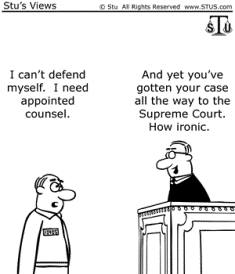
Gideon vs. Wainwright
 |
|
A man could not defend himself or buy a lawyer to use. The case resulted in the Supremem Court ruling that the court must produce an attourney for those who cannot afford one. |
| |
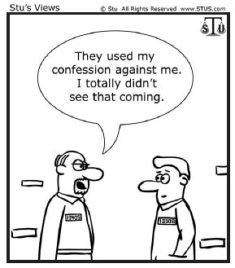
Mapp vs. Ohio
 |
|
A women was being forcefully searched without a warrant. The officer found evidence to use in a case, but the Supremem Court deemed it unusable. |
| |
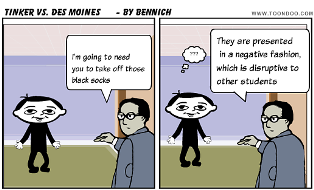
Tinker vs. Des Moines
 |
|
Children wore armbands to school in order to show a peace symbol. The students were told to take them off. The Supreme Court ruled that the students could indeed wear their armbands. |
| |
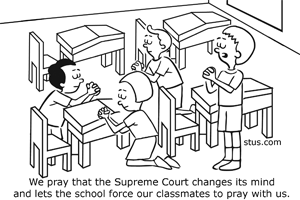
Engel vs. Vitale
 |
|
Unconstitutional for state officials to compose an official school prayer and require its recitation in public schools. |
| |
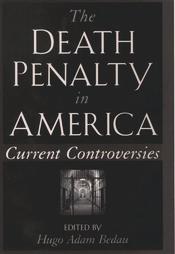
Furman vs. Georgia
 |
|
A man who was convicted of murder was to reveive the death penalty. Howeve, the Supreme Court overturned this ruling. |
| |
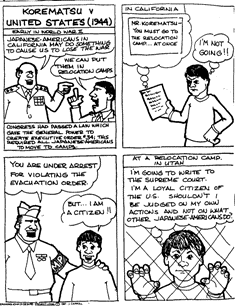
Korematsu vs. United States
 |
|
A Japanese man was forced to relocate into a simply because he was Japanese. Congress agreed that it was Constitution due to the need to protect US citizens. |
| |
